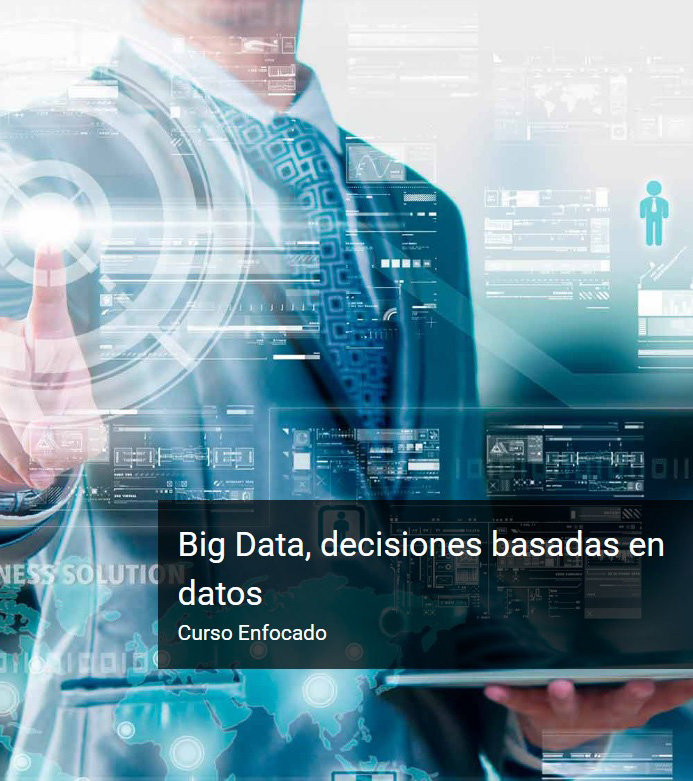Official Master's Degree in Big Data Science
More and more companies and organisations require professionals with knowledge of Big Data and Data Science data. The Master's Degree Executive in Big Data Science is an officialdegree scroll , born as a response to this demand: it offers a technical and specific programme, and at the same time, very practical.
The faculty come from various prestigious companies and institutions, with extensive experience in these tools. Students are taught how to use these tools in real situations and how to apply them in various fields.
The Executive format, with face-to-face sessions on Friday afternoons and Saturday mornings, makes it easier to combine professional performance with attendance at class, and to promote networking among professionals and companies.
Professional Certification as a Scientist of data
The Professional Scientist Certification from data is a test that enables professionals in the science industry from data:
-
Validate your knowledge and skills on the discipline science of the data.
-
Differentiate yourself from other professionals through a prestigious professional certification.
The Certification has as mission statement to define a standard in the field of science of data through which organizations can identify professionals with mastery of the field of advanced analytics. In addition, the Certification reinforces the credibility and visibility of the data scientist profession.
It consists of two clearly differentiated parts that will be addressed sequentially:
Part I
Use case review and work experience
Part II
Examination
Areas of knowledge evaluated
The Certification measures performance in 5 specific areas:
-
Problem formulation in the framework of the science of data
-
Machine Learning
-
Statistics
-
Mathematics
-
Programming
Course focused on Big Data, decisions based on data
Focused Course : 9 weeks (5-6 hours per week)
modality: synchronous online
The demand for professionals is growing by more than 25% every year. Managing data, discovering patterns and making decisions based on information are part of the 10 skills core topic that define the new professional.
This Focused Course will prepare you to participate and add value in projects related to artificial intelligence, machine learning and business intelligence.
By studying this course you will learn to:
-
Interpret data for process optimization and the creation of intelligent solutions.
-
Design a basic Big Data analysis model .
-
Incorporate the science of data to solve problems that participants routinely face in their professional environment.
-
Develop solutions to the practical cases proposed throughout the course.

In Company Programmes
Programming of tailor-made courses, workshops and seminars for companies, research groups, services or centres looking for updating and specialisation on data analysis topics related to real needs.
It is also possible to design introductory or specialised software courses.
Examples of courses already delivered:
- Specific workshop on design and validation of surveys for people in a hospital quality unit.
- Course for a hospital department focusing on survival analysis and sizing sample.
- Introductory workshop on R software.
Other programmes
Artificial intelligence has the power to transform global businesses by offering new sources of advantage and innovative business models. At the same time, it unleashes the disruption that will determine which players will ultimately capture value. IESE Business School offers executives the focused programme"Artificial Intelligence for Executives" where they can discover the power of Artificial Intelligence as a catalyst for innovation, growth and competitive advantage.



